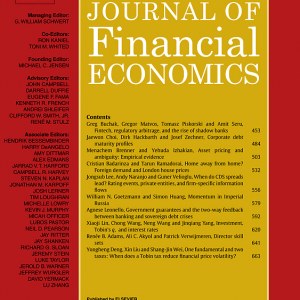
Degeorge, F., Martin, J. and Phalippou, L. (2016). On Secondary Buyouts Journal of Financial Economics, 120(1):124--145.
-
Affiliated authorJens Martin
-
Publication year2016
-
JournalJournal of Financial Economics
Private equity firms increasingly sell companies to each other in secondary buyouts (SBOs), raising concerns which we examine using novel data sets. Our evidence paints a nuanced picture. SBOs underperform and destroy value for investors when they are made by buyers under pressure to spend. Investors then reduce their capital allocation to the firms doing those transactions. But not all SBOs are money-burning devices. SBOs made under no pressure to spend perform as well as other buyouts. When buyer and seller have complementary skill sets, SBOs outperform other buyouts. Investors do not pay higher total transaction costs as a result of SBOs, even if they have a stake in both the buying fund and the selling fund.